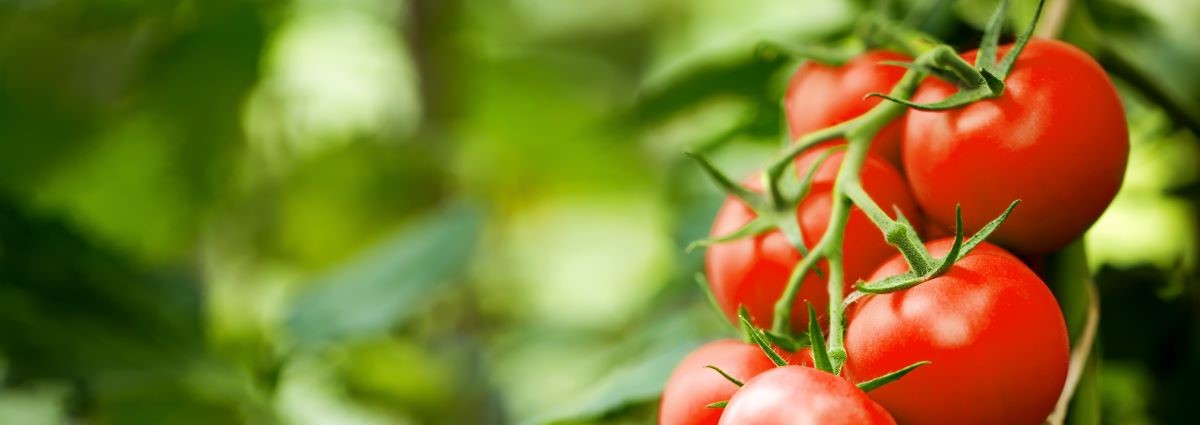CO2 enrichment in greenhouses is revolutionising horticultural production by enhancing plant growth and increasing yields. Mark Dziuba, Commercial Manager for Nippon Gases in the UK and Ireland, shares insights into how Nippon Gases, a leader in the industrial gases sector, supports this vital process through its CO2 supply and technology.
While CO2 is often linked to carbon emissions and environmental concerns, it has significant benefits in agriculture, particularly in greenhouses. "We have numerous applications for CO2," says Dziuba. "One key application is for glasshouses in agriculture." CO2 is essential for photosynthesis, and in controlled environments like greenhouses, it can significantly boost plant growth when properly managed.
"When it is sunny and warm, higher CO2 levels enable plants to photosynthesize more efficiently, leading to stronger plants and increased yields," explains Dziuba. "The benefits are numerous."
CO2: Beyond Industrial Applications
While CO2 is often linked to carbon emissions and environmental concerns, it has significant benefits in agriculture, particularly in greenhouses. "We have numerous applications for CO2," says Dziuba. "One key application is for glasshouses in agriculture." CO2 is essential for photosynthesis, and in controlled environments like greenhouses, it can significantly boost plant growth when properly managed.
"When it is sunny and warm, higher CO2 levels enable plants to photosynthesize more efficiently, leading to stronger plants and increased yields," explains Dziuba. "The benefits are numerous."
CO2 Supply Chain and Distribution
Nippon Gases boasts an extensive CO2 supply chain across Europe. In the UK and Ireland, the company sources CO2 from bioethanol fuel and ammonia production. This CO2 is captured, cleaned, liquefied, and stored for various uses, including carbonating products.
"We have three ships that import our CO2 into our terminals at Teesside, Tilbury, and Warrenpoint in Ireland," says Dziuba. "These ships come from our liquefaction plants in Sluiskil in the Netherlands and Porsgrunn in Norway. We also produce CO2 on a large scale in the UK, ensuring a reliable supply for our customers."
CO2 Enrichment and Horticulture
CO2 enrichment in greenhouses involves increasing the concentration of CO2 in the air to optimise plant growth. Dziuba explains that while the normal atmosphere has around 380 parts per million (ppm) of CO2, greenhouse environments can drop to much lower levels due to photosynthesis, reducing plant productivity. "When plants are photosynthesizing and the vents are closed, CO2 levels inside the building can drop significantly, sometimes to around 150 to 200 ppm," he notes.
For optimal growth, especially for C3 plants like tomatoes, CO2 levels of around 800 to 1,000 ppm are ideal. "C3 plants can have an increased yield of 40 to 100% if you increase the amount of CO2 in the atmosphere," Dziuba explains.
How CO2 Enrichment Works
Nippon Gases provides the infrastructure required for CO2 enrichment, including installing liquid CO2 storage tanks at customer sites. The CO2 is vaporised and injected into the greenhouse atmosphere, improving plant metabolic activity, increasing final yields, and enhancing plant resilience.
"We install a liquid CO2 storage tank at the customer's site and put vaporisers in place to turn it from liquid to gas," Dziuba explains. "The glasshouse then controls how it injects CO2 into the atmosphere, depending on factors like the time of year, ventilation, and whether it's sunny, daytime, or nighttime."
Sustainable CO2 Use
Nippon Gases is committed to reducing its environmental footprint, aiming to become a net-zero producer by 2050. One way the company addresses sustainability is by sourcing CO2 from bioethanol fuel production, offering a more sustainable alternative to ammonia-based CO2 production.
"The CO2 from bioethanol sources is part of a circular economy," Dziuba explains. "We use the CO2, but eventually it returns to the atmosphere, and the plants absorb it again."
By using bioethanol-derived CO2, Nippon Gases reduces reliance on fossil fuels and contributes to a more sustainable agricultural system. The company plans to expand this model in the coming years, establishing additional CO2 sources in the UK from bioethanol fuel production.
Challenges and the Future of CO2 Supply
Despite the benefits of CO2 enrichment, the industry faces challenges, particularly in maintaining a consistent supply chain. Dziuba highlights issues such as the volatility of gas prices and the closure of ammonia production plants in the UK. "Ammonia production in the UK has ceased, meaning 400,000 tons of CO2 are no longer available in the UK and Ireland market," he explains.
Nevertheless, Nippon Gases has managed to maintain a reliable supply of CO2 by leveraging its European network. By importing CO2 from multiple sources, the company ensures that its customers, including those in the greenhouse sector, can continue to benefit from CO2 enrichment.
By providing CO2 to greenhouses, Nippon Gases helps farmers increase yields and improve plant health. "By using CO2 enrichment, you are effectively giving the plants the best environment in which to grow, aiming to increase productivity and yields with stronger, more resilient plants," concludes Dziuba.
